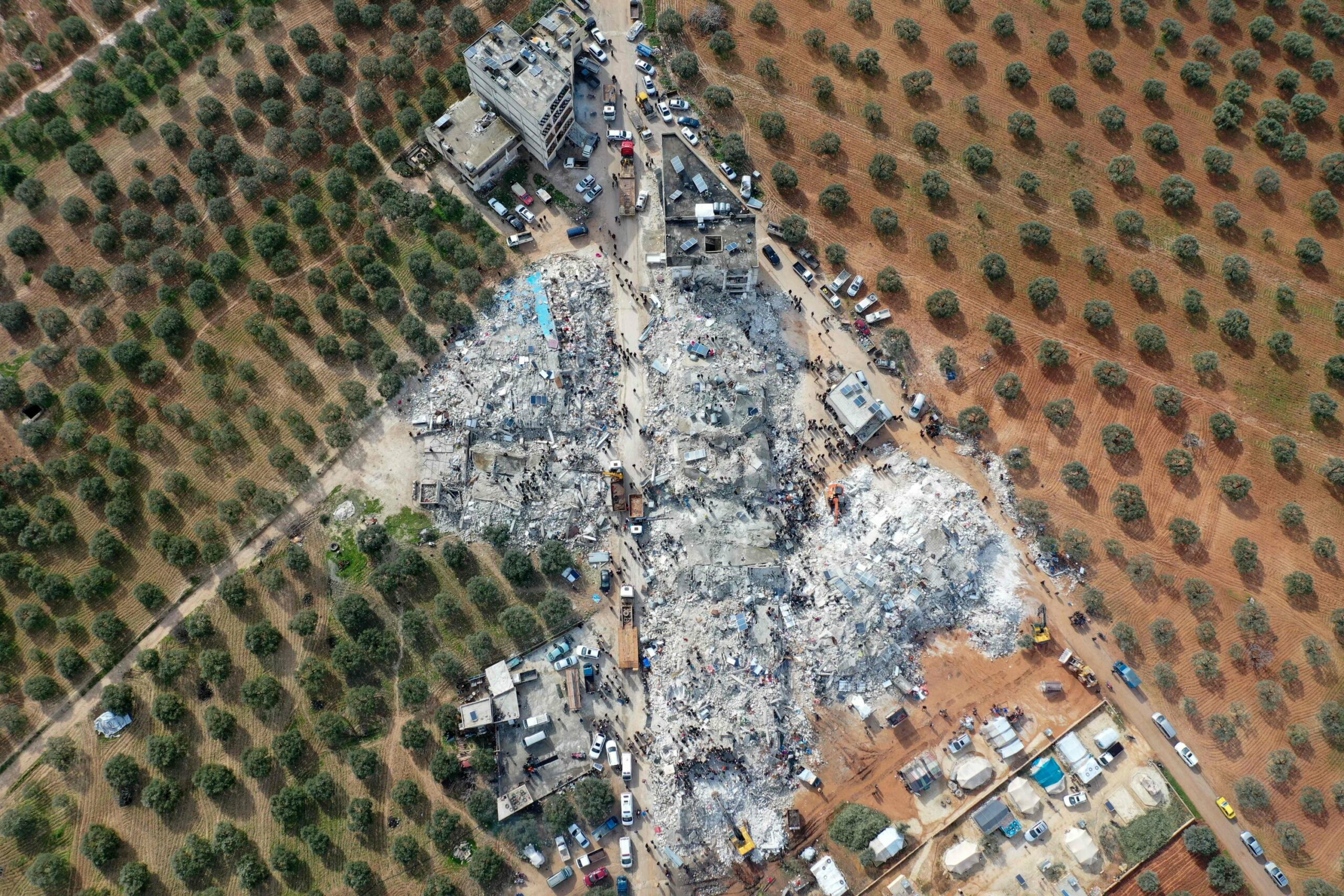
Interview with Dr. Hussein Bazar, the Minister of health for the Syrian Salvation Government (SSG), regarding the medical situation in Northern Syria which was the second most affected after Turkey by the recent earthquake.
L24: What is the current situation of the medical sector?
Dr. Hussein Bazar: As for the state of the health sector after the fifth day of the earthquake (February 10), there are a large number of various types of injuries, over 5,000, and the number of deaths is staggering, the health sector has been completely exhausted.
Now that we have reached the end of the first stage of extricating those trapped under the rubble, and in most cases they are dead, we can say that the issue has become related to treating the injured and their recovery which requires a lot of capabilities and equipment, medicine and basic medical supplies, especially with regard to the kidneys, and nerve damage, and so on.
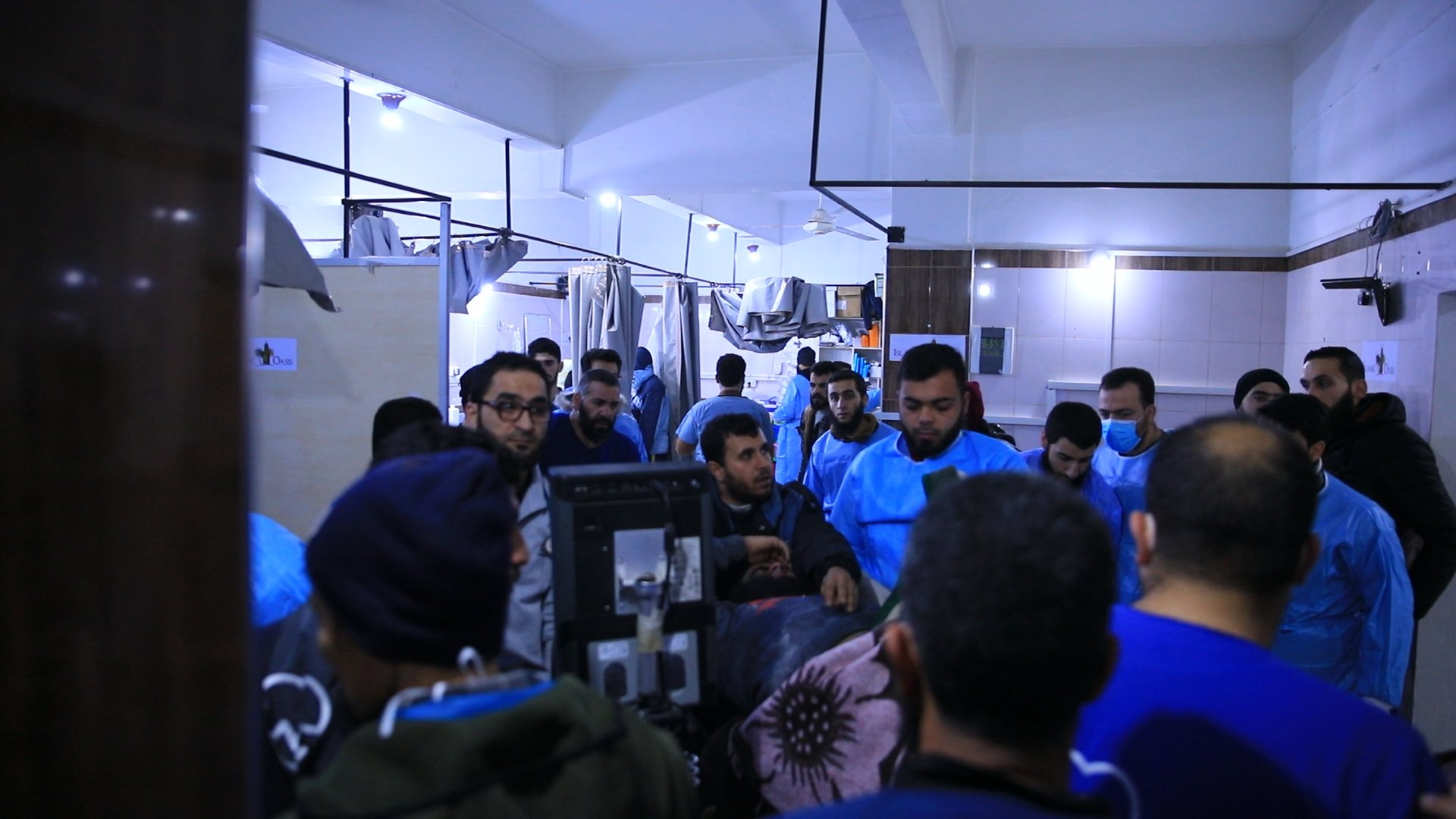
L24: What are the greatest obstacles in the aftermath of the earthquake?
Dr. Hussein Bazar: From the outset, there were many obstacles. There was already a preexisting deficiency in the health sector, as it has been suffering from a fierce war for more than a decade, and the medical sector and healthcare workers were one of the primary targets in the war. Hospitals, ambulances, and medical personnel were directly targeted by the regime forces and the Russian occupation.
Exacerbating this is the recent decline in humanitarian support, which has led to the complete cessation of some projects, the partial cessation of others, and the cessation of some specializations in other projects. There were also many projects that were supported only by salaries for workers, without any funding for medicine, materials, or consumables.
All of this led to many difficulties impacting the health sector’s ability to deal with such a great disaster, as a large number of injured are entering the hospitals at once, in addition to weakness in the ambulance systems in general, and the lack of some specific specializations in the region, most of all, there was a shortage of basic supplies. In some cases, these circumstances resulted in the deaths of patients and injured in the hospitals.
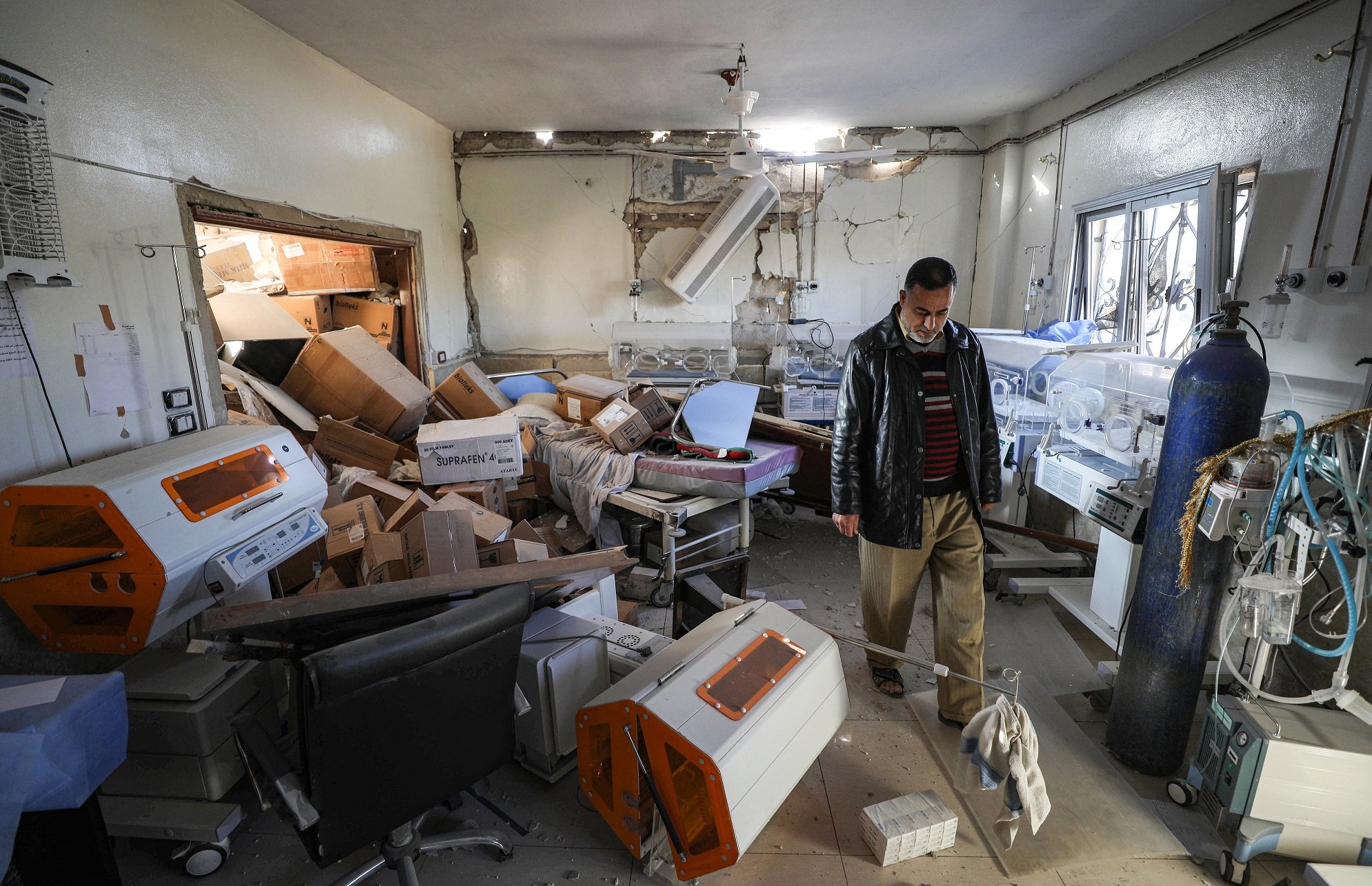
L24: What is needed for the area?
Dr. Hussein Bazar: What’s required for the health sector to recover is a lot, because it was already on its way to collapse before this disaster occurred. Some hospitals have stopped working because they were damaged due to the earthquake. There are many devices whose performance has declined because they’ve been used beyond their capacity, and have reached a stage where they are almost inoperable, some equipment actually stopped working on the first day after the earthquake.
As we mentioned earlier, the requirements for specific surgical procedures, medicines of all kinds, and consumables, especially with regard to dialysis, most of the dialysis projects stopped several days ago, and now they are considered one of the vital needs, as many of the injured recovered from the rubble suffer from crush syndrome, and it is known that these cases need dialysis due to renal insufficiency.
We also need laboratory equipment, bone consumables, and a lot of different means, in addition to the help of some consultants in some specific, microscopic, and major surgeries. There is a shortage of materials and capabilities because we were relying on local stocks only, which are about to run out. Several organizations operating in the liberated areas of northern Syria have also announced that their stocks have run out.
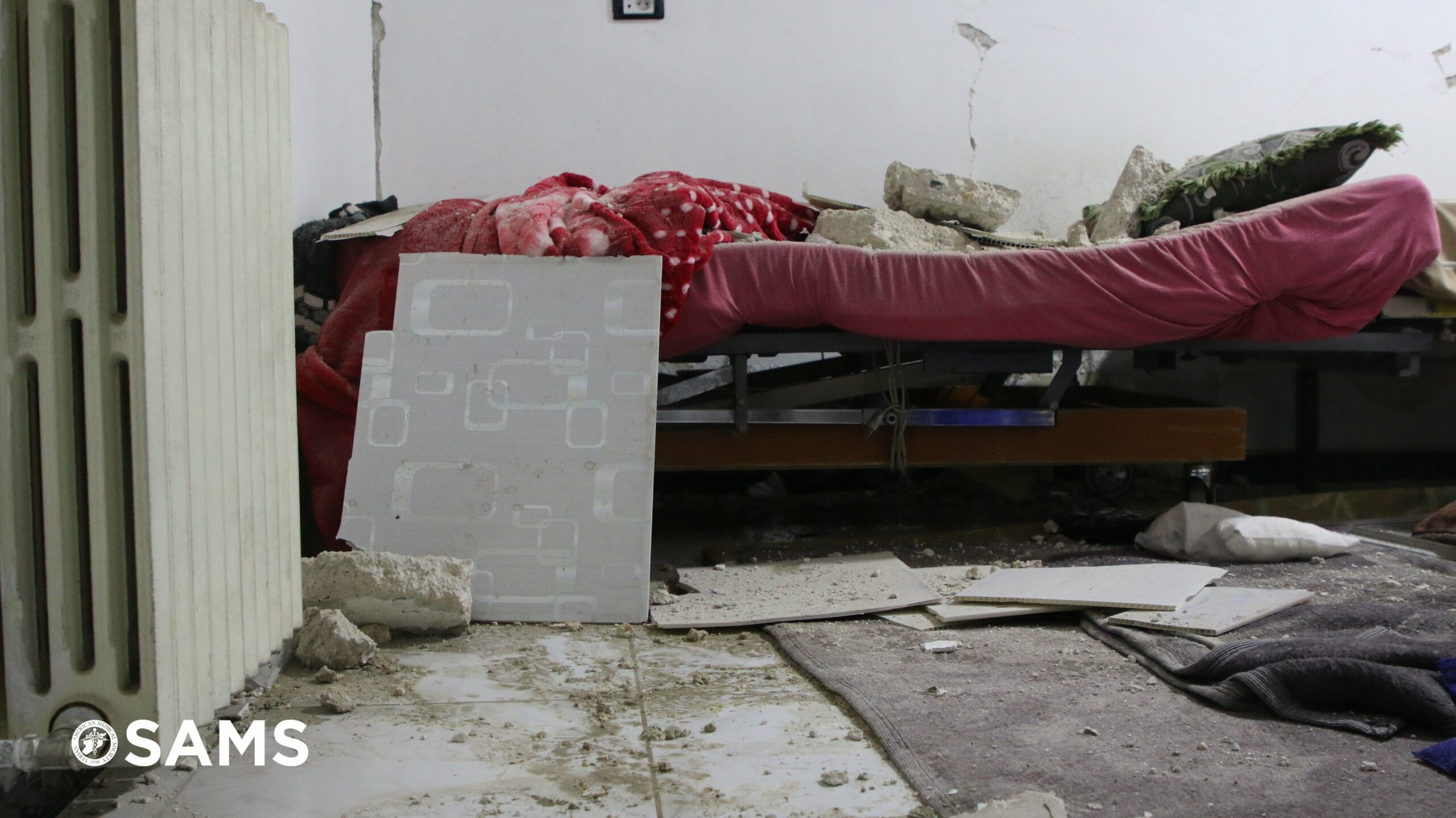
L24: What are the reason for the lack of aid from the outside and the slow response to the Syrian earthquake?
Dr. Hussein Bazar: The first stage was the most critical, and it is strange that there was no cooperation, just promises without implementation. No party responded to us except the local parties, although we repeatedly communicated with many outside parties.
There was a pretext that the roads were impassable, although they were in fact passable for the hundreds of bodies of Syrians who died under the rubble in Turkish land. The road was passable for the bodies, but it was impassable for aid, as they claimed.
Until this moment (February 10), nothing has entered under the name of medical aid or even anything else. Some teams and some doctors entered voluntarily, in fact, and not in a coordinated manner through the United Nations or others, and they have witnessed the extent of the catastrophe on the ground.
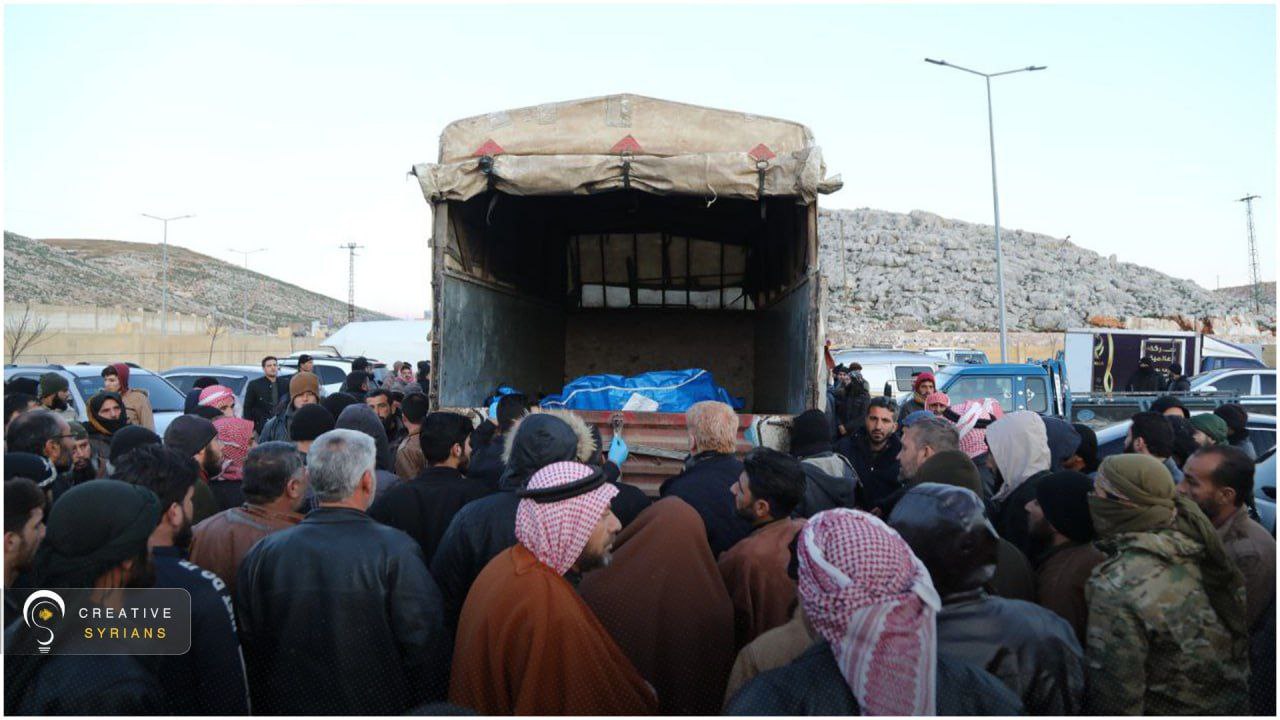
L24: What is the impact of the earthquake on the medical sector, considering its previous condition due to the rigors of war?
Dr. Hussein Bazar: As we mentioned, the medical sector was already near collapse, and now it is in fact almost collapsed, the medical personnel is completely exhausted, over 90 percent of medical supplies stocks inside the liberated areas have been depleted, and there are huge numbers of injuries that need a lot of treatment, and there will be a great deficiency in their treatment, and some of them injuries may become permanent disabilities if they are not provided with the adequate treatment, in addition to the living conditions of thousands of families who were displaced due to the earthquake and headed towards poorly equipped havens in light of these difficult winter conditions.
All of these things will be a huge burden on the health sector, the reality in the liberated north is it’s an environment, in terms of housing and camps, which paves the way for many epidemics and health problems, and the situation has worsened greatly after the earthquake.
If the area is not followed up by the donors, and the required assistance is not provided, this area will become full of all kinds of epidemics, the health condition of the people living here will be very bad, children will be infected with multiple diseases, and we may enter into a state of malnutrition or other medical issues. Frankly, the situation is close to being at the highest degree of danger that it has ever been.
